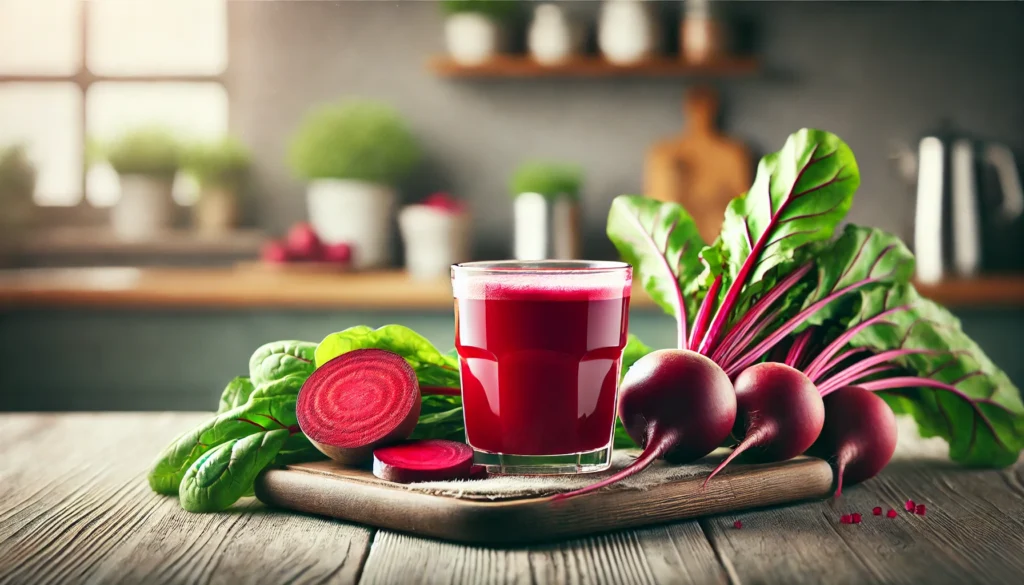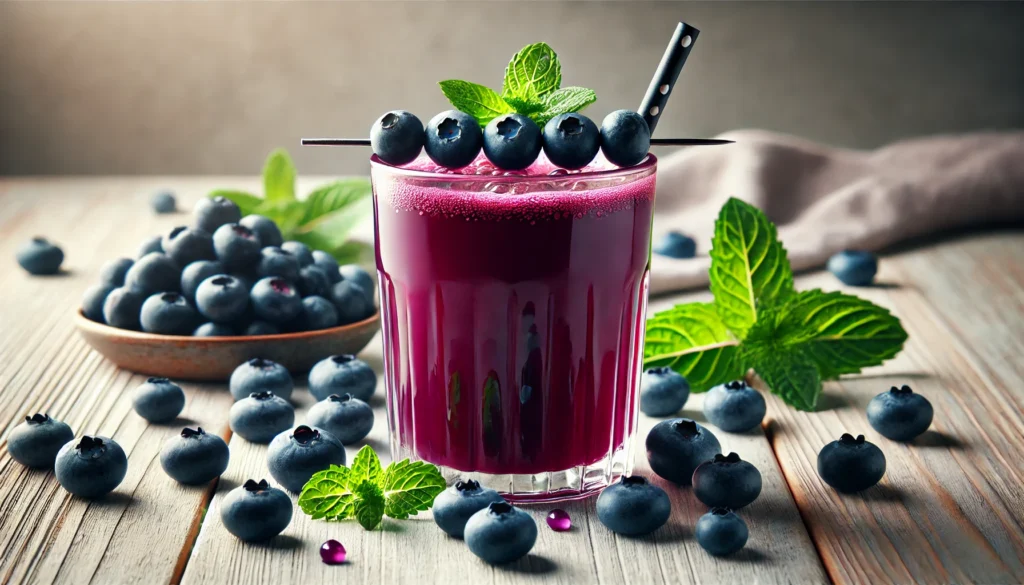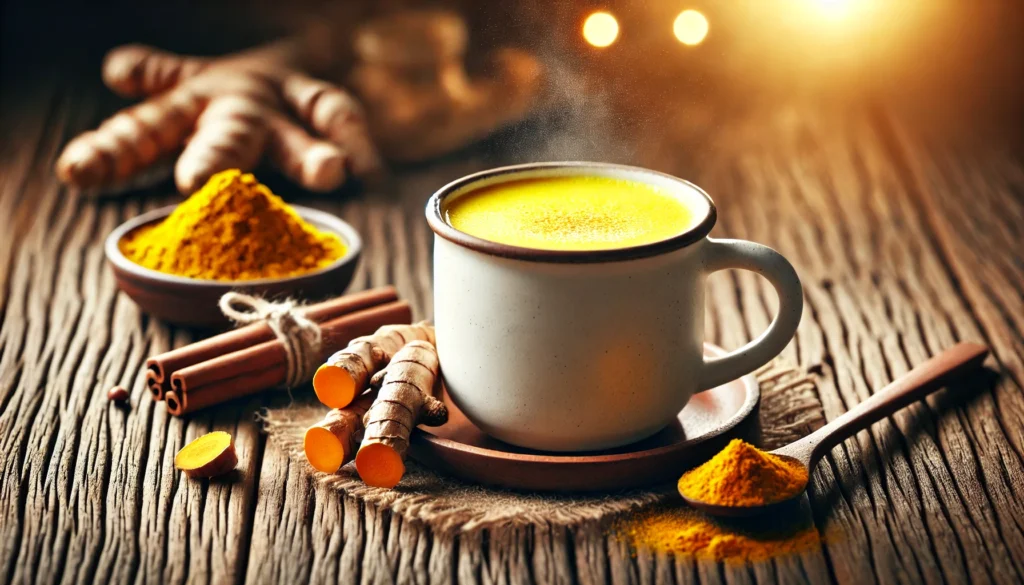Memory is a vital function of our brain that we often take for granted. It’s the cornerstone of learning, decision-making, and even our sense of identity.
But have you ever wondered if what you drink could affect your memory?
Scientific research suggests that certain beverages can indeed boost your memory and cognitive function. These drinks, often referred to as “brain food drinks,” contain nutrients that support brain health and enhance cognitive performance.
From green tea to beetroot juice, these drinks offer a range of benefits. They can improve focus, enhance memory recall, and even protect against cognitive decline.
In this article, we’ll explore the top drinks that can boost your memory. We’ll delve into the science behind their benefits, providing you with a comprehensive guide to enhancing your cognitive health through hydration.
Whether you’re a health and wellness coach, a science journalist, or a biohacker, this article will equip you with the knowledge you need.
So, let’s embark on this journey of discovery together. Let’s find out what drink improves memory and how you can incorporate these beverages into your daily routine.
You may also like: Top Foods to Enhance Your Memory
The Importance of Hydration for Memory Enhancement
Hydration is crucial for optimal brain function. Water makes up about 75% of the brain, influencing memory and cognitive abilities. Without adequate hydration, brain cells struggle to communicate effectively.
Dehydration can lead to brain fog, confusion, and poor concentration. This highlights the direct link between hydration and clear thinking. Even mild dehydration has been shown to impair memory and attention.
To maintain peak mental performance, consistent hydration is key. Drinking water throughout the day replenishes fluids lost to daily activities. This simple habit can significantly enhance memory and cognitive clarity. Make hydration a priority for better brain function.
Caffeine: A Double-Edged Sword for Focus and Memory
Caffeine is a popular stimulant found in coffee, tea, and many energy drinks. It can enhance alertness and concentration by blocking adenosine, a neurotransmitter that promotes sleep. This action leads to increased dopamine and norepinephrine, enhancing mood and focus.
However, caffeine’s benefits for memory are not as straightforward. While it can improve attention, excessive intake might lead to jitters and anxiety. These side effects can counteract any memory-enhancing effects, especially if consumed in large amounts.
Timing also plays a role in caffeine’s effectiveness. A moderate amount in the morning can help kickstart your day. But consuming caffeine close to bedtime can disrupt sleep patterns, which are vital for memory consolidation.
It’s essential to strike a balance with caffeine. Understand your tolerance levels and avoid reliance on high-caffeine drinks. When used wisely, caffeine can be a powerful tool for boosting focus and potentially supporting memory functions.
Green Tea: The Brain-Boosting Beverage
Green tea is renowned for its unique blend of beneficial compounds. Rich in polyphenols, particularly catechins, it provides a powerful antioxidant effect. These antioxidants help protect brain cells from oxidative damage, which can impair memory.
One standout component in green tea is L-theanine, an amino acid. L-theanine encourages relaxation without the drowsy side effects, making it an ideal drink for focus. When paired with caffeine, L-theanine enhances cognitive performance more than caffeine alone.
The benefits of green tea extend beyond just relaxation and concentration. Studies suggest it may play a role in improving working memory. Regular consumers of green tea have shown better memory recall and faster task execution.
If you’re looking to incorporate green tea into your routine, consider these options:
- Sip a warm cup in the morning to start your day.
- Replace sugary beverages with iced green tea.
- Experiment with matcha, a powdered form with concentrated benefits.
Green tea offers a multifaceted approach to improving brain health. Its synergy of antioxidants, L-theanine, and moderate caffeine gives it a unique advantage. As part of a balanced diet, green tea can truly be a brain-boosting beverage of choice.
The Role of Antioxidants in Brain Health: Dark Chocolate and Cocoa Drinks
Antioxidants are vital in safeguarding our brain from oxidative stress. Oxidative stress can lead to cellular damage and cognitive decline. Dark chocolate and cocoa drinks are rich sources of antioxidants known as flavonoids.
Flavonoids in dark chocolate aid in increasing blood flow to the brain. This improved blood circulation supports cognitive functions and enhances memory. Regular intake of flavonoid-rich cocoa has been linked to better visual memory and recall skills.
Dark chocolate also contains caffeine and theobromine. These compounds, though in smaller amounts than coffee, contribute to enhanced alertness and improved mood. Consequently, enjoying a few squares or a cocoa drink can provide an energy boost with additional cognitive benefits.
When choosing dark chocolate, opt for varieties with at least 70% cocoa content. This ensures maximum antioxidant benefits with reduced sugar intake. For cocoa drinks, consider unsweetened or minimally sweetened options to minimize sugar consumption. Incorporating these treats into your diet can support both brain health and memory enhancement, providing a sweet yet beneficial indulgence.
Omega-3 Rich Drinks: Nourishing Your Brain
Omega-3 fatty acids are crucial for brain health. They play a vital role in maintaining the structure and function of brain cells. Certain drinks provide an easy way to incorporate these essential nutrients into your diet.
Smoothies made with flaxseeds or chia seeds offer an omega-3 boost. Adding these ingredients enhances brain health while providing a refreshing drink. Additionally, plant-based milk alternatives fortified with omega-3s are available in many grocery stores.
Algae-based drinks are another excellent source of omega-3s. Unlike fish oil, algae oil is a sustainable and vegan option. These drinks are a practical choice for those seeking to avoid animal products. By incorporating omega-3 rich beverages into your daily routine, you support overall brain function and optimize cognitive performance. These simple additions can make a meaningful difference in your memory and mental sharpness.
Herbal Teas and Memory: Ginkgo Biloba and Beyond
Herbal teas have been cherished for their health benefits for centuries. Among these, ginkgo biloba stands out for its memory-enhancing properties. This ancient herb may improve blood flow to the brain, boosting cognitive function.
Ginkgo biloba is not alone in its brain-boosting capabilities. Other herbal teas also contribute to mental clarity. These teas often contain compounds that support brain health and function.
For those looking to diversify their tea selection, consider the following options:
- Ginkgo Biloba: Known for enhancing blood flow and cognitive function.
- Rosemary Tea: May improve concentration and memory.
- Lemon Balm Tea: Associated with reducing stress and boosting brain performance.
- Gotu Kola Tea: Traditional use for cognitive enhancement and calming properties.
These herbal teas can be easily integrated into daily life. Drinking a cup each day can promote better brain health. Combining different teas keeps your routine interesting and varied.
Herbal teas offer a natural approach to supporting memory. Incorporating them into your diet may help you stay mentally sharp. They provide a gentle way to boost cognitive function without relying on artificial substances.
Turmeric and Curcumin: Spicing Up Your Cognitive Function
Turmeric has gained attention for its potential health benefits, especially for the brain. The active ingredient, curcumin, is a powerful antioxidant and anti-inflammatory compound. These properties make it a strong candidate for supporting cognitive health.
Research suggests that curcumin may help to reduce inflammation in the brain. This can be vital in protecting against cognitive decline and memory loss. Regular consumption of turmeric drinks, like golden milk or turmeric tea, could be beneficial.
Incorporating turmeric into your routine is simple and delicious. Adding it to smoothies, teas, or warm milk can enhance flavor and nutrition. Its vibrant color and warm taste make it a versatile addition to various drinks.
For those interested in boosting their cognitive function naturally, turmeric is a valuable choice. Its benefits extend beyond memory improvement, potentially supporting overall brain health. Experiment with turmeric-infused beverages to enjoy both flavor and function.
Adaptogens for the Mind: Rhodiola Rosea and Mental Performance
Adaptogens are natural substances known to support the body’s resilience to stress. Rhodiola rosea, in particular, is renowned for its cognitive benefits. This herb is believed to enhance mental performance and reduce fatigue.
Research indicates that Rhodiola rosea may improve mood and cognitive function. By reducing stress and fatigue, it can boost mental clarity and focus. This makes it an attractive option for those seeking natural mental support.
Incorporating Rhodiola rosea into your diet can be straightforward. It is often consumed in teas or as a supplement. Regular inclusion in your routine may help optimize mental performance and bolster brain health.
Beetroot Juice and Brain Blood Flow: A Recipe for Cognitive Health
Beetroot juice is increasingly celebrated for its potential brain-boosting benefits. It is rich in nitrates, which convert to nitric oxide in the body. This process promotes blood vessel dilation, thus improving blood flow.
Enhanced blood flow to the brain can significantly impact cognitive function. Studies suggest beetroot juice may enhance oxygen delivery to areas of the brain linked to executive function. This could lead to sharper thinking and improved memory performance.
Incorporating beetroot juice into your diet can be both delicious and beneficial. Try it as a refreshing drink or as an ingredient in smoothies. Regular consumption may offer a natural edge in maintaining cognitive health and energy levels.

Blueberry Juice: A Sweet Path to Sharper Memory
Blueberry juice is often touted as a potent ally for memory enhancement. Bursting with antioxidants, particularly flavonoids, blueberries combat oxidative stress. This helps preserve brain cell integrity and promotes cognitive longevity.
Research links blueberry consumption to improved memory and cognitive function. The flavonoids in blueberries positively affect brain pathways involved in memory. Regular intake may lead to better information retention and mental clarity.
Adding blueberry juice to your diet is simple and enjoyable. It’s not only refreshing but also a nutrient-packed option for those seeking to boost brain health. Enjoy it alone or mixed with other fruit juices for a delicious, brain-friendly beverage.
Coffee and Memory Consolidation: What You Need to Know
Coffee is a beloved beverage worldwide, cherished for its ability to wake us up. But did you know it may also improve memory? Caffeine, coffee’s key component, plays a role in memory consolidation.
When consumed in moderation, coffee may enhance the brain’s ability to process and store information. This can lead to better recall and learning efficiency. However, the benefits rely on proper timing and quantity.
Too much caffeine can result in jitteriness and disrupt sleep patterns. Poor sleep can negate the cognitive benefits coffee offers. Thus, balancing coffee intake with healthy lifestyle habits is crucial for reaping its memory-enhancing potential.
The Sugar Trap: Avoiding Cognitive Decline Through Drink Choices
High-sugar drinks are enticing but can be detrimental to brain health. Excess sugar intake is linked to cognitive decline. It’s important to understand how sugar affects your brain.
Sugar spikes can impair the brain’s function over time, potentially increasing the risk of memory loss. This happens because sugar contributes to inflammation and oxidative stress, both harmful to brain cells. Such effects underscore the need for moderation when consuming sugary beverages.
Alternatives like water, herbal teas, or low-sugar drinks support brain health without the risks. By opting for these healthier options, you help protect your cognitive abilities. Choose wisely, and you’ll foster a sharper memory and better focus in the long run.

Probiotic Drinks: Gut Health and the Brain Connection
Recent research shines a light on the gut-brain connection. Probiotic drinks, packed with beneficial bacteria, play a vital role in this communication. Enhancing gut health can lead to better cognitive function.
The microbiome, residing in your gut, influences your mood and memory. Probiotic drinks help maintain this microbiome’s balance, promoting a healthy gut. When your gut is balanced, your brain reaps the benefits.
Additionally, a healthy gut can reduce inflammation, which is often linked to cognitive impairments. By incorporating probiotic drinks into your routine, you’re not just aiding digestion; you’re supporting your mental clarity. Choose drinks like kefir or kombucha for both gut and brain health.
Red Wine: Resveratrol and Brain Health in Moderation
Red wine, when consumed wisely, holds potential benefits for brain health. Resveratrol, a powerful antioxidant found in red wine, supports cognitive function. This compound may protect brain cells from damage and aging.
Moderate wine consumption has been linked to improved memory and a lower risk of cognitive decline. Resveratrol aids in maintaining blood flow to the brain, crucial for sustaining mental acuity. It’s important to remember that moderation is key.
Excessive alcohol intake can negate these benefits and harm overall health. Aim for a balanced approach—one glass for women and up to two for men, ideally alongside a healthy diet. Always consult a healthcare professional when considering alcohol for health benefits.
Matcha Green Tea: The Focus-Enhancing Powerhouse
Matcha green tea stands out as a potent enhancer of focus and mental clarity. Unlike regular green tea, matcha is consumed as a powder, offering a concentrated dose of beneficial compounds. The presence of L-theanine and caffeine in matcha is key.
These compounds work synergistically to provide a calm, alert state, improving concentration and reducing stress. L-theanine promotes relaxation without drowsiness and enhances cognitive performance. This combination is why matcha has become a favorite among those seeking a natural focus aid.
Moreover, matcha is loaded with antioxidants known as catechins, which support brain health by combating oxidative stress. Drinking matcha regularly can lead to sustained cognitive benefits. For those looking to boost mental clarity and focus through natural means, incorporating matcha into your routine may be a wise choice.
The Role of Lifestyle in Memory Improvement: Beyond Drinks
A well-rounded approach to memory enhancement extends beyond what you drink. While beverages can provide beneficial nutrients, lifestyle factors play a crucial role. Regular physical activity, for example, is known to boost brain health and memory.
Exercise increases blood flow to the brain, promoting the growth of new neural connections. It also helps in reducing the risk of cognitive decline. Incorporating a mix of cardiovascular and strength training exercises may yield the best results for brain function.
Sleep is another critical component often overlooked in cognitive health. Adequate and quality sleep is necessary for memory consolidation and mental rejuvenation. Ensuring a consistent sleep schedule can improve memory retention and cognitive abilities significantly.
Diet plays a vital role too. A balanced diet rich in fruits, vegetables, and whole grains supports overall cognitive health. Combining a nutrient-rich diet with regular hydration and mental exercises can provide a holistic approach to memory enhancement. Thus, while memory-boosting drinks can support cognitive function, they are most effective when part of a broader healthy lifestyle.
Nootropic Drinks and Brain Optimization: A Biohacker’s Guide
Nootropic drinks have gained popularity in the quest to optimize mental performance. These beverages, often called “smart drinks,” are formulated to enhance brain function. They contain ingredients that can boost memory, focus, and overall cognitive abilities.
Biohackers are particularly drawn to these drinks for their potential benefits. Nootropics may include a variety of substances known to enhance brain health. Such ingredients work by improving neurotransmitter function and increasing blood flow to the brain.
Here’s a glimpse into common nootropic ingredients:
- L-theanine: Promotes relaxation without drowsiness.
- Caffeine: Increases alertness and concentration.
- Ginkgo biloba: Enhances circulation and brain function.
- Bacopa monnieri: Supports memory and cognitive longevity.
- Rhodiola rosea: May reduce fatigue and enhance mental endurance.
It’s important to note that individual responses to nootropic drinks can vary. Factors such as genetics, lifestyle, and overall health can influence their effectiveness. Users should monitor how different formulations affect them and consult professionals if needed. Incorporating nootropic drinks into a balanced lifestyle can complement other cognitive strategies for optimal brain performance.

Conclusion: Balancing Diet, Hydration, and Lifestyle for Optimal Memory
A well-rounded approach to enhancing memory extends beyond just consuming specific drinks. It involves nurturing the body with a balanced diet rich in brain-friendly nutrients. This includes a variety of fruits, vegetables, and omega-3 fatty acids that support cognitive health.
Staying hydrated is equally crucial as dehydration can impair memory and focus. Consistent water intake supports brain function and helps maintain mental clarity. This highlights the fundamental role hydration plays in preventing brain fog and sustaining concentration.
Lifestyle factors, such as regular exercise and adequate sleep, are essential for cognitive well-being. They work in synergy with memory-boosting drinks to enhance mental performance. By embracing a comprehensive strategy encompassing diet, hydration, and lifestyle habits, one can effectively promote optimal memory and cognitive function.
Further Reading:
21 Brain Boosting Beverages to Improve Your Memory
Top 10 foods to improve your memory
Important Note: The information contained in this article is for general informational purposes only, and should not be construed as health or medical advice, nor is it intended to diagnose, prevent, treat, or cure any disease or health condition. Before embarking on any diet, fitness regimen, or program of nutritional supplementation, it is advisable to consult your healthcare professional in order to determine its safety and probable efficacy in terms of your individual state of health.
Regarding Nutritional Supplements Or Other Non-Prescription Health Products: If any nutritional supplements or other non-prescription health products are mentioned in the foregoing article, any claims or statements made about them have not been evaluated by the U.S. Food and Drug Administration, and such nutritional supplements or other health products are not intended to diagnose, treat, cure, or prevent any disease.


